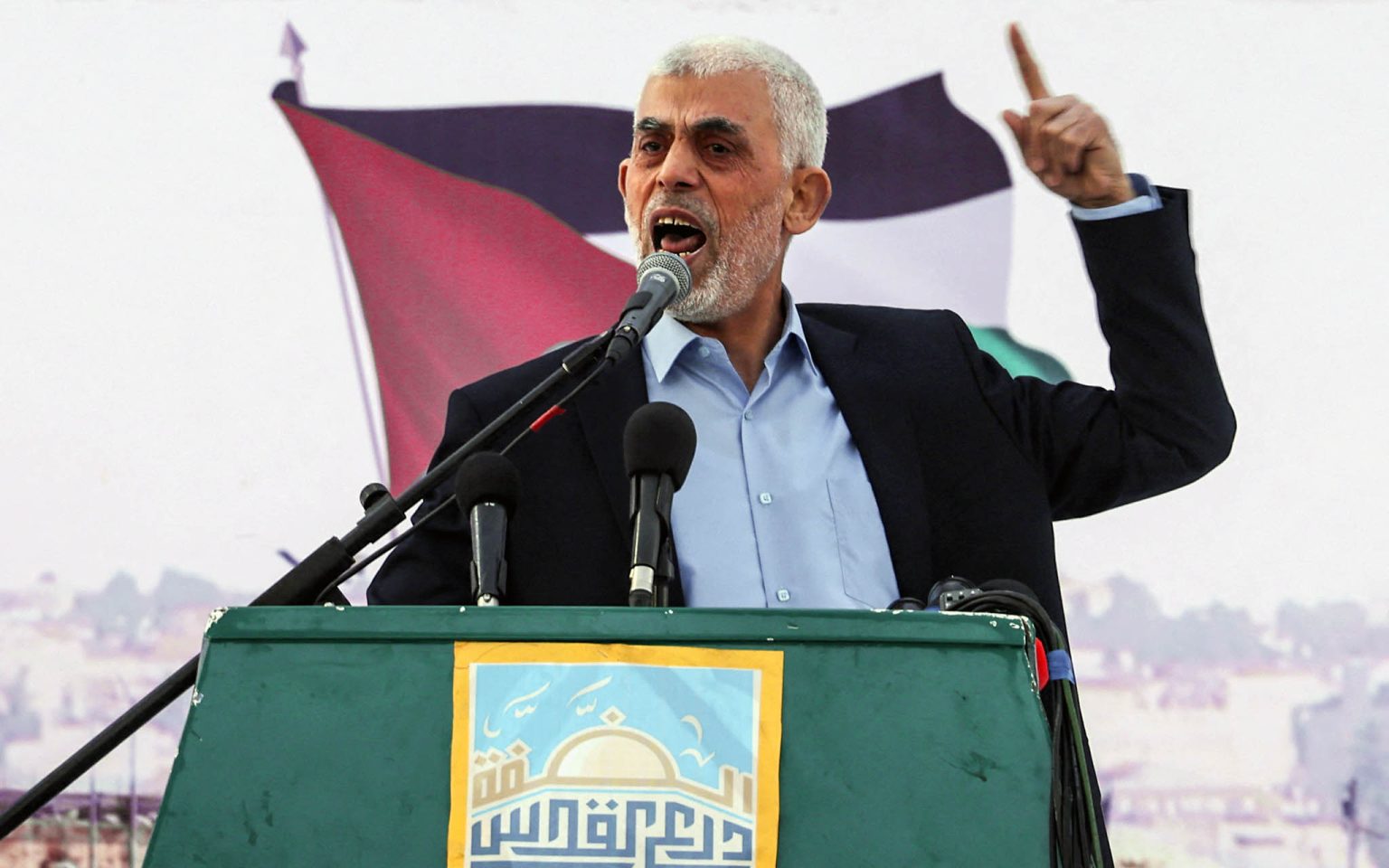Since Hamas’s unprecedented attack on Israel on October 7, Yahya Sinwar has been at the top of Israel’s most wanted list, but the newly appointed chief of the Palestinian group has remained as elusive as ever.
Israeli commanders believe Sinwar, 61, is hiding in a labyrinthine maze of tunnels that Hamas has built under the Gaza Strip over the years.
In December, Prime Minister Benjamin Netanyahu announced that the army had surrounded Sinwar’s house, but since then there has been little to no information on his whereabouts.
“There are many unanswered questions,” said Michael Milstein, an Israeli analyst and former adviser to the defence ministry.
“I am quite sure that there are lots of places that he can hide in, and he has a lot of men around him that are really loyal to him and support him,” he added.
Images of Sinwar were rare even before the October 7 attack on Israel, which resulted in the deaths of 1,198 people, mostly civilians, according to an AFP tally based on official Israeli figures.
During the attack, Hamas militants seized 251 people, 111 of whom are still captive in Gaza, including 39 the Israeli military says are dead.
Israel’s retaliatory military campaign has since killed at least 39,699 people in Gaza, according to the health ministry in the Hamas-run territory, which does not provide details of civilian and militant deaths.
Sinwar has not been seen in public since the attack.
But in February, the Israeli military released grainy footage of a man it said was Sinwar walking through a tunnel on October 10, three days after the deadly attack on Israel.
The black and white CCTV footage was found during a military operation. AFP was unable to independently verify the authenticity of the video.
– ‘Hideout to hideout ‘ –
The video was the “result of our hunt”, Israeli military spokesman Rear Admiral Daniel Hagari said in a televised briefing at the time.
“The hunt will not stop until he is captured, dead or alive. We are determined to capture him.”
It was not the video that was important, Hagari said, but the intelligence the military could glean from it that would help find other top militants.
Days later, Defence Minister Yoav Gallant claimed that Sinwar was “on the run” and moving from “hideout to hideout”.
Earlier this month, the military announced that in July it had killed Mohammed Deif, the head of Hamas’s armed wing and, along with Sinwar, one of the alleged planners of the October 7 attack.
In recent days, there have been rumours that Sinwar has been meeting with hostages still being held in Gaza.
When a week-long ceasefire was concluded at the end of November, and dozens of hostages were freed in exchange for Palestinian prisoners, one of the released captives claimed to have seen Sinwar.
But after questioning Yocheved Lifshitz, 85, the security services concluded that it was not Sinwar she had seen, her son told Israeli television Channel 13.
“Using complex means, he communicates with all the leadership of the movement both inside (Gaza) and outside, and also with the (Ezzedine) al-Qassam Brigades,” a senior Hamas leader told AFP, referring to the group’s armed wing.
“He follows complex security procedures for his personal protection, but this does not prevent him from continuing his duties and making decisions,” the official said on condition of anonymity as he was not authorised to speak on the issue.
Sinwar will speak soon about his appointment as Hamas chief, he added.
– Speculation –
Meanwhile, his absence is fuelling ample speculation over his location.
Some claim to have seen him walking the streets of Gaza to celebrate his new appointment or meeting with Palestinian families displaced by the war, but there has been no confirmation.
The Israeli media have also reported anecdotes and aspects of his personality from many who spent time with him in Israeli jails, where he was imprisoned for 23 years.
Diplomats, journalists and commentators often speculate on how the Hamas supremo might be communicating with other officials of the movement outside of Gaza, given that he is involved in indirect negotiations with Israel for a ceasefire and that his responses take several days to reach them.
“I won’t be surprised if he is surrounded by hostages as a shield,” Milstein said.
“He does understand that if he is protected by hostages, it will be more difficult for Israel to attack him.”
Milstein said Sinwar has many people who respect him, while others fear him.
“He must be receiving help from Gazans who either fear him or adhere to Hamas’s ideology.”
While some claim he has left Gaza, most experts on Hamas reject that idea.
“He is not afraid to die… A commander does not leave his warriors behind,” said Guy Aviad, an Israeli military historian.
AFP
